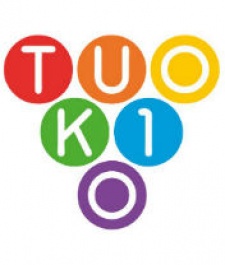Over at Finnish start up Tuokio, the larger screens of tablets provides the means to create truly social experiences - with players interacting on a single device.
We caught up with CEO Jouni Salonen to find out more.
Pocket Gamer: Can you tell us a little about Tuokio?
Jouni Salonen: Tuokio is a Finnish indie studio making multiplayer games (King of Opera, Raiding Company, Blonde vs Brunette Racing) that was started in 2010 as we wanted create multiplayer games tailored for touchscreens on smartphones and tablets.
Our goal is to provide a new, fun way to spend time together while sitting with friends, family or colleagues face-to-face around a single device at home, at friend's house, at a cafe or in the office.
Tuokio's current team of 10 employees is mostly recently graduated or graduating arts and media students mixed with a few mobile games industry veterans from Digital Chocolate and THQ Wireless.
We're based in Tampere, Finland and are part of the New Factory co-working space.
What markets are you aiming for?
Our target audiences are people who are into multiplayer and social gaming - kids, families and young folks to whom games are a form of social entertainment.
Geographically we thought that this would work the best in Asian countries and based on the performance of our titles that seems to be true.
We're hoping that over time more conservative continents such as Europe and the US will adapt and learn to like the single device multiplayer gaming on tablets and touchscreens in a bigger way too.
Our primary platform markets are touchscreen devices - tablets and phones. In an ideal world we would like to focus on tablets only but so far we've released our games on touchscreen phones too.
The model seems to be working - iPad is great for the big picture gaming when at home and iPhone is great for the ultimate portability, ad hoc social play in the office, cafe, car etc.
To-date, we've only done iOS but in 2012 we will likely expand to Android too and potentially Windows Mobile, depending on Unity 3D's support for Windows Mobile.
What are the benefits to developing multiple titles at once?
In our case, as a young company we're trying to do a little bit of everything - faster feedback cycles and learning what works and what does not work.
It also reduces risk as it's hard to predict what game will sell, and where.

For us it has also provided an opportunity to get our name out on the market more often.
Last but not least, it has enabled our teams to focus on games or multiplayer style they feel passionate about.
How do you hope to solve the problem of discoverability?
That is going to be one of our key focus areas for 2012, trying to figure out new ways for people to find our games, in addition to the standard launch promotions, updates and deal campaigns.
We've not done much marketing yet as we thought it makes sense to build a little portfolio of games first and then try to get more and more people interested in our style of multiplayer gaming.
That's also one of our key ideas for discovery - hopefully getting to be known as makers of the best multiplayer games, as well as word of mouth by playing one of our games on your friend's device etc.
We think that 2012 will be a very interesting year in discoverability with Twitter iOS integration, Facebook's mobile efforts and with the '2.0 versions' of mobile specific social gaming networks such as DeNa, GREE, Papaya Mobile, maybe even EA's Origin and likely new solutions by Flurry, Tapjoy etc. for player acquisition.
How have you benefited from the Finnish games development community?
I think that there are at least three things.
First, it's encouraging to have examples of local successes and there kind of local quality level you need to hit in order to get 'respect' from the local game development community.
Secondly, local partnerships are almost always the easiest and we've utilised those for select features or assets in our games.
Thirdly, and potently, the Manse Games program has helped us to get more visibility for our company and time efficient meetings with a variety of game industry people without having to spend time traveling etc.
Thanks to Jouni for his time. You can find out more about Tuokio here.






















